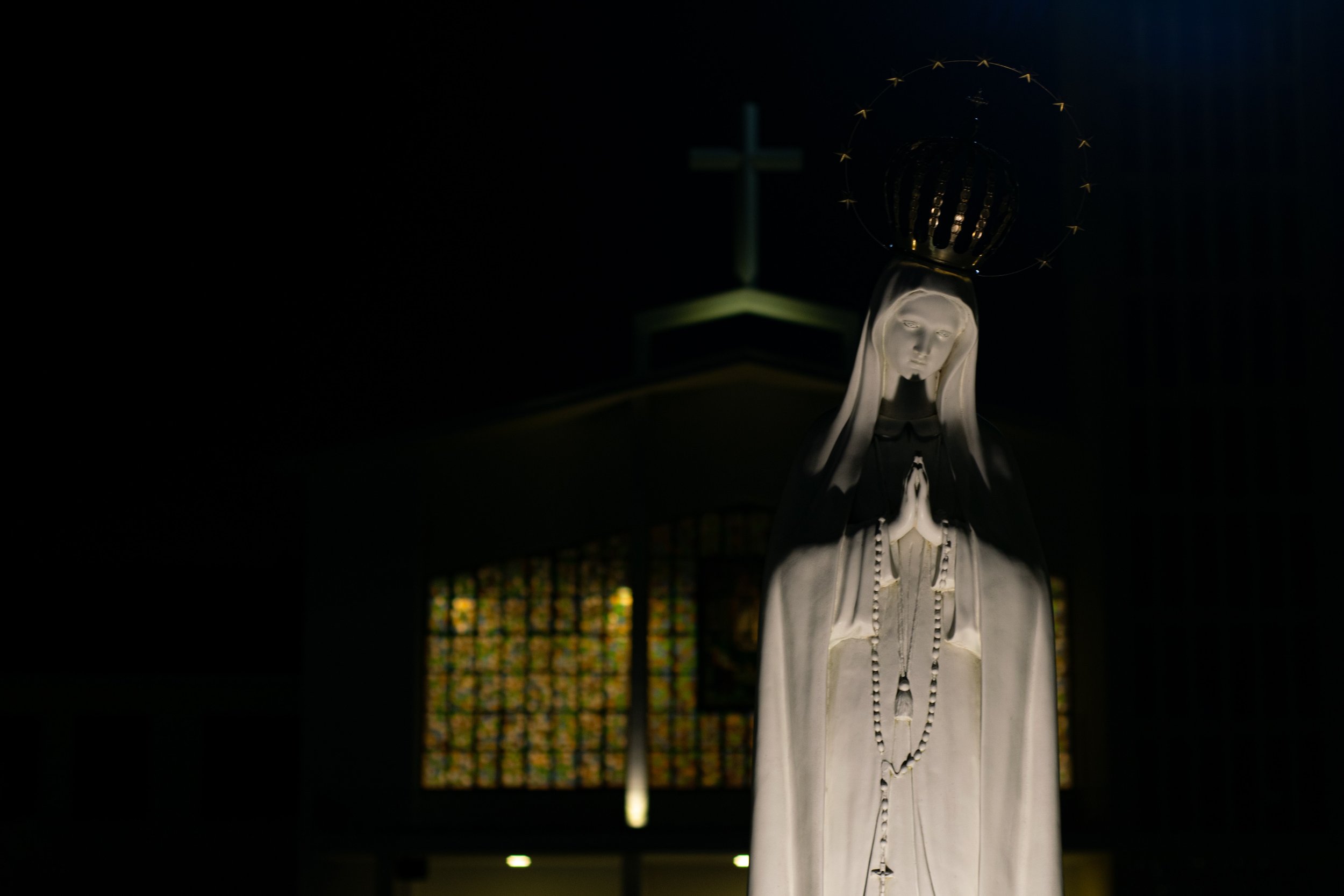Reflections on Mary
Pondering the meaning of our Blessed Mother’s words in Luke 1 should lead us to marvel at the possibility we each have in Christ.
The application is multilayered. The role of Mary reflects not only an inversion of what is commonly considered honorable but an extension of the profound grace we can access in Christ and through His Holy Sacraments. In the most meaningful way possible, her narrative reveals the very nature of God’s work in this world. It shows the extent to which He delights in leveraging our participation in His divine plan. Like His Grace, the gift is gratuitous. This reality should remain front and center of our evangelization efforts if we are to fully convey the beauty of God’s choice to cooperate with us.
In Mary, the Christian sees hope fulfilled in unparalleled fashion. She embodies the end toward which we strive. She shows us that it is attainable. From Annunciation to Assumption, “Mary is the fulfillment of the reality of which the Church itself is merely a type” (Scott Hahn, Hail, Holy Queen). As the New Eve, Mary plays a crucial role in the redemption story, saying “yes” when Eve said “no” — even crushing the head of the serpent that deceived her predecessor (here I am favoring the feminine variant of Genesis 3:15). Through her great assent, she cooperated with God’s will, making it her own. Her entire life is spent serving Christ and helping point others to Him. If we Christians seek eternal happiness, this should be our aim, too.
When sharing the Gospel with others, the unattainable perfection toward which we strive can be disconcerting to the point of discouragement. Further reflection on Mary’s life can help us through this. Her socioeconomic status was lowly, yet the angel told her all nations would call her Blessed. The little she had in life was threatened by the startling news of her virgin birth, but she trusted God, determined to follow Him at all costs.
Even after her Son was tortured and murdered before her eyes, Mary clung to the Cross. In the midst of her anguish, she took on the role of Mother to us all (John 19:25-27). And now she watches over her children, interceding on our behalf as she did for the wedding guests at Cana (John 2). It is a hard lesson to ponder, but one that demands our attention. Mary remained sinless because she remained fixed on Christ. In her Son, we too can be made perfect.
Gratuitous though it may be, the use of instrumental causes is self-evident because it’s how we humans operate. From the invention of the wheel to AI-enhanced computing, we constantly utilize secondary instruments to help us achieve our desired primary ends. Most of us would agree that we are better off as a result of this cooperation between the instrument and its wielder.
This symbolic self-evidence on a micro scale can help us find a starting point from which to launch into a philosophical discourse on the macro implications of these causes. Ideally, we use it to point others to the Primary Cause of our very existence. In pointing to these secondary causes, we must be careful not to neglect the Primary — for that is the key through which the rest can be understood.
As Augustine reminds us, “What does anyone who speaks of you really say? Yet woe betide those who fail to speak.”
If you have questions about Catholicism and would like to personally discuss them, we’d love to chat. Please contact us and someone on our team will reach out shortly to connect with you.

